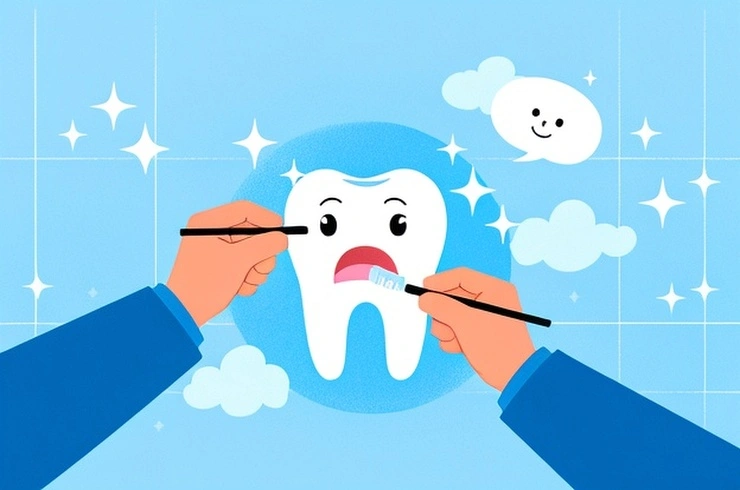
Bad breath, medically known as halitosis, is a common concern that can significantly affect an individual's confidence and social interactions. While most people experience a bit of "morning breath," persistent or severe halitosis signals a need to investigate its underlying causes. Understanding the origins of bad breath is the first step toward effective management and prevention.
The primary culprit behind bad breath is the accumulation of bacteria within the oral cavity. As detailed in a review published in the Journal of Pharmacy & BioAllied Sciences (JPBS), specific oral bacteria interact with proteins present in saliva, leading to the production of volatile sulfur compounds. These sulfur compounds are responsible for the unpleasant odor associated with halitosis. Several factors can contribute to this bacterial proliferation and the subsequent development of bad breath, including:
Suboptimal Oral Hygiene: Inadequate brushing and flossing allow food particles to remain trapped in the mouth, providing a rich environment for bacteria to thrive and produce odor-causing compounds.
Gum Disease (Gingivitis and Periodontitis): Inflammation and infection of the gums create pockets where bacteria can accumulate and release foul-smelling gases.
Tongue Bacteria: The rough surface of the tongue can harbor a significant amount of bacteria, which can also contribute to bad breath if not regularly cleaned.
Ear, Nose, and Throat (ENT) Issues: Conditions such as tonsillitis and sinusitis can lead to post-nasal drip and bacterial growth, resulting in halitosis.
Dry Mouth (Xerostomia): A lack of adequate saliva flow reduces the mouth's natural cleansing ability, allowing bacteria and food debris to linger and cause odor.
Lifestyle Habits: Personal choices like smoking and excessive alcohol consumption are well-known contributors to chronic bad breath.
A common question that arises when discussing bad breath is: "Do cavities cause bad breath?" While cavities, which are small holes in the teeth formed by bacterial erosion of enamel, do not directly cause halitosis, they can certainly be a contributing factor. The American Dental Association (ADA) explains that decay pockets in teeth can become traps for bacteria and food particles. This accumulation makes it significantly harder to maintain oral cleanliness and thus, fresh breath. Therefore, while bad breath doesn't automatically mean you have a cavity, it's a possibility worth exploring. Regular dental check-ups are crucial, and if you suspect a cavity or experience tooth sensitivity or pain, immediate consultation with your dentist is advised.
Effectively managing and preventing both bad breath and cavities largely revolves around consistent and diligent oral hygiene practices.
Brush Twice Daily: Brushing your teeth at least twice a day with a fluoride toothpaste physically removes plaque, decay-causing bacteria, and food debris.
Floss Daily: Daily flossing is essential to remove lingering bacteria and food particles from between teeth and along the gumline, areas that toothbrushes often miss.
Maintain Oral Moisture: Saliva plays a vital role in cleansing the mouth and neutralizing acids. A healthy saliva flow is one of the best natural defenses against bad breath. Ensure you drink plenty of water throughout the day. If you experience persistent dry mouth, consult your doctor, as certain medications can be a contributing factor.
Quit Smoking: Smoking not only causes bad breath but also significantly increases the risk of gum disease. Seek assistance from your doctor for strategies to quit.
Clean Oral Appliances: If you wear dentures or other oral appliances, the Mayo Clinic recommends daily cleaning to prevent bacterial buildup and associated bad breath. Always follow your dentist's specific instructions for appliance care.
Regular Dental Visits: Professional dental cleanings remove plaque and tartar that at-home brushing may miss, and your dental professional can identify and address any cavities before they worsen. Cavity fillings prevent further decay and eliminate potential bacterial traps.
Bad breath can be disheartening, but understanding its causes and implementing a robust oral care routine, complemented by regular dental visits, empowers you to maintain a healthy mouth and fresh breath. While cavities don't directly cause bad breath, their presence can certainly exacerbate it, making comprehensive oral hygiene a key strategy for preventing both issues.
Pro Tip
The content of the article is shared by netizens, please carefully identify it